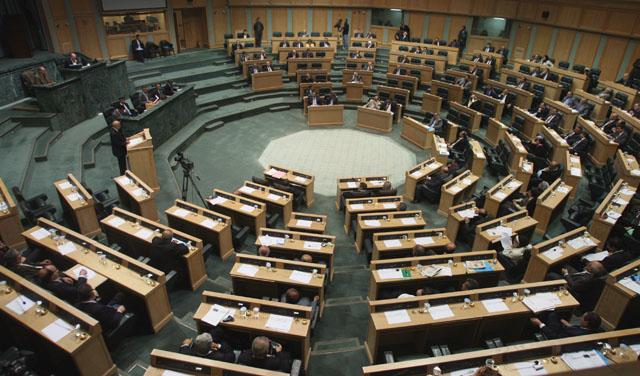You are here
House blocs lack clear political programmes — study
By JT - Oct 08,2014 - Last updated at Oct 08,2014

AMMAN — The Lower House’s blocs have failed to function as the basis for the envisioned parliamentary governments, with individual trends rather than cohesive programmes still governing their conduct, according to a recent study.
The study, conducted by Al Quds Centre for Political Studies, revealed that the House’s eight blocs have failed to act collectively and cohesively according to well-defined political programmes and have therefore been unable to exert any considerable pressure over the executive authority.
According to the study, a copy of which was sent to The Jordan Times on Wednesday, the blocs of the 17th Lower House were formed according to the same method in which alliances had been formed in previous parliaments — through influential or rich MPs with ambitions to become House speakers or gain high positions in the Chamber’s permanent office.
Despite the new “progressive” amendments to the House’s Rules of Procedure aimed at regulating bloc work, they have acted in a “chaotic” manner rather than working to reach consensus among their members, the report said.
Division among bloc members was most evident in the different stances they have shown on voting over major issues such as confidence in the government and the draft state budget law.
Blocs have also failed to take disciplinary measures against any member for not abiding by the group’s stance.
The study also found that the House’s blocs have shied away from local issues and have not formed any coalition to actively lobby for a certain cause.
Sixteen of the House’s 18 women MPs have joined the blocs but none have been elected to lead.
However, the study traced progress in the conduct of blocs in the current Parliament in comparison with their predecessors, attributing the development primarily to the institutionalisation of their work in the amendments to the House’s Rules of Procedure.
The study recommended that the Elections Law be comprehensively revisited to ensure the presence of politically and ideologically homogenous blocs in future parliaments.
The study also recommended more amendments to the House’s by-law to obligate blocs to stick to their founding principles and internal rules.
Related Articles
AMMAN — The Lower House is keen on discussing the items of the Parliament’s Code of Conduct, which is considered the framework for the House
AMMAN — The key to achieving the envisioned political reform is a new election law that encourages candidates and political parties with pla
Work is under way within the Lower House to draft a code of conduct to regulate the performance of lawmakers, and it is expected to be ready before the end of this month, according to a parliamentary source.











